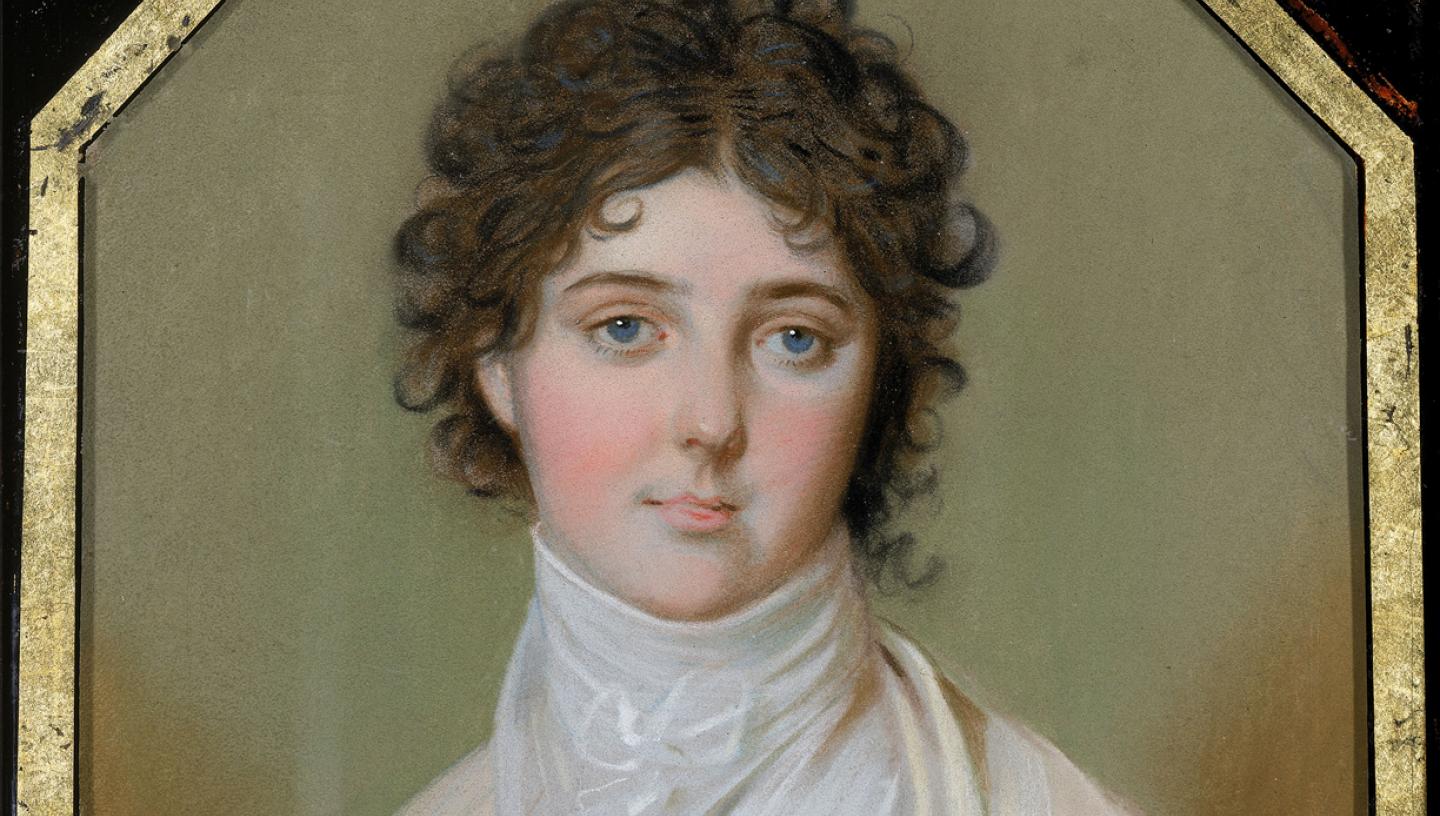
Despite leading an extraordinary life Emma Hamilton is probably best known for her scandalous affair with Lord Nelson, which lasted from 1799 to his death in 1805.
The love affair was a passionate and enduring one that scandalised high society as both were married and Nelson was a household name, thanks to his heroic exploits in the British Royal Navy.
Lord Nelson met the Hamiltons in Naples in 1793, where Sir William was stationed as British Ambassador. By 1799, Nelson and Emma Hamilton had grown close and become lovers. How much Emma’s husband, Sir William Hamilton, knew about the affair at the start is debatable. Most historians agree that he must have guessed they had become lovers but was content to look the other way, so long as his wife did not abandon him.
The three of them returned from Naples to England together in 1800. By now Emma was pregnant with Nelson's child.
When it became clear that Nelson would have to choose between Emma and his wife, Frances, he chose Emma. Not long after he told Emma in a passionate letter that she was his wife ‘in my eyes and in the face of heaven’. Nelson returned to active service in January 1801, which meant the lovers were apart when Emma gave birth to a daughter, whom they named Horatia. They kept in touch through a series of passionate letters.
Living together
For Nelson, any form of concealment was completely against his nature. He wanted to live with Emma openly. Remarkably, with Sir William's compliance he achieved this, though their scandalous but close three-way friendship was publicly mocked by caricaturists like James Gillray. In the autumn of 1801 Emma arranged the purchase for Nelson of a house in Merton in Surrey, and there the three of them often lived together, until Sir William died in April 1803. During these happy 18 months, Nelson's relationship with Emma appears to have matured from a passionate affair into a quasi-marriage.
When Nelson returned to sea shortly after Sir William's death, and the letters began again, they had none of the jealous anguish of the ones he had written in 1801. Instead they resembled the letters he had once written to his wife – with complaints about Emma's inefficient packing, plans for improvements to the house and continued promises that he would be home before long.
Final days
They had one last brief time together in August and September 1805, when he came home on leave after chasing the French fleet to the West Indies and back. For the first time, they were able to have Horatia with them openly at Merton, but even so they were hardly ever alone. The house was full of Nelson's relations and friends, and he was often absent in London consulting with politicians and the Admiralty.
However, on the day before he left to return to active duty, they did manage to find time to go to the parish church where, in a conscious imitation of a marriage service, they received private communion and exchanged rings.
As HMS Victory sailed into action at Trafalgar, Nelson's last private act was to amend his will, in which he implored his king and country to provide for Emma and Horatia.
Nelson’s death
Emma was at Merton Place when the news of her lover's death arrived. She was devastated. Once Nelson was gone she was abandoned by many of his family and friends. She also found that no one was prepared to honour his last wishes and provide for her and their child. Drink, always a weakness, became an addiction. Her debts mounted up, forcing her to sell many of her possessions and then Merton, which Nelson had left to her. Eventually she was driven into a debtors' prison, accompanied by Horatia.
The final blow came in 1814, when some of Nelson's letters to her were published, opening up a public debate about the exact nature of their relationship. The blame for this indiscretion fell on her but she always denied having anything to do with it.
Eventually in July 1814, Emma crossed the Channel with Horatia to Calais to escape her creditors. Six months later she died. She never acknowledged that Horatia was her daughter, and despite all the evidence, Horatia never accepted that Emma was her mother.